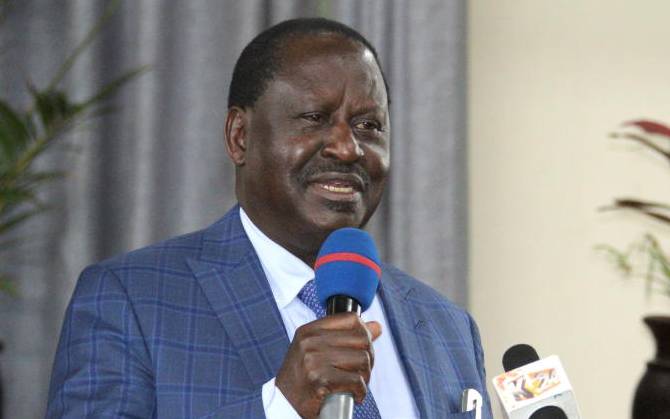×
The Standard e-Paper
Fearless, Trusted News

Investors are avoiding Kenya due to frustrations in the energy sector, Opposition leader Raila Odinga has claimed.
Raila, who is also the African Union High Representative for Infrastructure Development, said bureaucracies in Kenya had seen energy capacity at a level that production was almost equivalent to consumption.